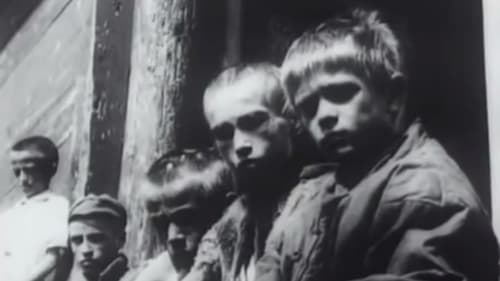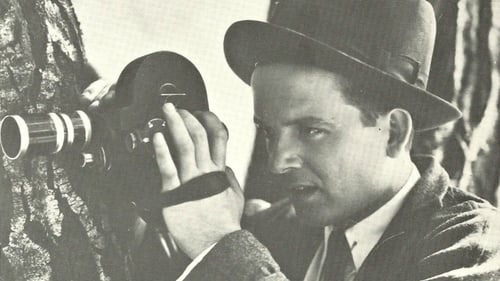Newsreel 62 – Family and Worker (2017)
Genre : Documentary
Runtime : 12M
Director : Nika Autor, Marko Bratina
Synopsis
Newsreel 62 reflects on the participation of two Syrian artists in a 1966 Yugoslavian art show celebrating the Universal Declaration of Human Rights, showcasing the relative ease with which objects (as opposed to people) can pass across borders.

Dziga Vertov-directed Soviet newsreel made to commemorate the first anniversary of the death of Vladimir Ilich Lenin (21st January 1924 - 1925) drawn from 'The Final Journey', a Pravda feuilleton written on the occasion of Lenin's funeral by the man who had introduced Vertov to cinema, Mikhail Koltsov. Contains: First anniversary of Lenin's death: 1. Assassination attempt on Lenin and Soviet Russia's progress under his leadership / 2. Lenin's illness, death and funeral / 3. The year after Lenin's death

Dziga Vertov-directed Soviet newsreel covering: Starving children / Requisitioning of valuables possessed by the Russian Orthodox Church / Fundraising flights in support of the hungry / Trial of the Socialist Revolutionaries.

A bumbling, long-winded and crooked Southern senator, considered by some as a dark horse for the Presidency, panics his party when his tell-all diary is stolen.

The newsreel series Jornal Português (1938-1951) was produced for the Secretariat of National Propaganda (SPN/SNI) by the "Portuguese Newsreel Society" (SPAC), under the technical supervision of António Lopes Ribeiro. It was conceived and employed as part of the propaganda machinery of Salazar's regime. Screened in cinema theatres prior to the main feature film, each issue of Jornal had approximately ten minutes in length and covered a variety of official government acts, national political news, major sports events and other assorted social and cultural affairs. Jornal Português is not only an indispensable document for the history of Estado Novo's propaganda, but also an unparalleled audiovisual archive of 1940s Portugal.

Rokas and Inga, a couple of young Lithuanians, volunteer to drive a cargo van of humanitarian aid to Ukraine. They cross the vast snowy lands of the Donbass region, drifting into the lives of those affected by the war.

For Histoire du soldat inconnu (Story of the Unknown Soldier) Storck watched newsreels for the whole of 1928, the year when 60 nations signed a pact outlawing war, and juxtaposed this heart-warming utopia with the signs of a forthcoming conflict (this was in 1932) – burgeoning nationalism, police brutality, excessive colonialism, bellicose politics. Ferocious editing sarcastically juxtaposes these good intentions with the political farce of speeches and parades, all to the tune of factory chimneys collapsing in slow motion and the exhumed body of an “unknown soldier”. —cinematek.be

Produced by the Fox Movietone News arm of Fox Film Corporation and based on the book by Lawrence Stallings, this expanded newsreel, using stock-and-archive footage, tells the story of World War I from inception to conclusion. Alternating with scenes of trench warfare and intimate glimpses of European royalty at home, and scenes of conflict at sea combined with sequences of films from the secret archives of many of the involved nations.

Bored rich girl hooks up with news photographer, gets caught up in his adventures.

Short newsreel on why personal thrift feeds the Depression.

Several prohibition agents display cans and bottles of seized liquor for the camera. They are then shown dumping the goods at a junk yard.

In an on-camera interview, Ohio working girl Mary Clowes explains that she is offering her hand in marriage to whoever can provide $10,000 to support her parents, who have since lost their farm and who, following the deaths of her two brothers, rely on her as their lone source of financial support.

G.W. Wickersham, head of Commission, sums up it's findings for Metrotone.

A Hearst Metrotone News reel.

Newsreel on the end of Prohibition.

Made during Prohibition and consists of a group of Federal agents destroying a cache of liquor.

This newsreel depicts the inner-workings of a bootleggers' facility for making and distributing illegal bootleg liquor..

People give their opinion to the report on the unpopular Dry Law.

President Harding and his wife paying tribute to a group of Indians (Fragment of a longer piece)

Newsreel 62 reflects on the participation of two Syrian artists in a 1966 Yugoslavian art show celebrating the Universal Declaration of Human Rights, showcasing the relative ease with which objects (as opposed to people) can pass across borders.

This short film focuses on the USS Franklin, an aircraft carrier that in March 1945 suffered heavy bombing damages and a massive toll on servicemen before returning to the U.S.







